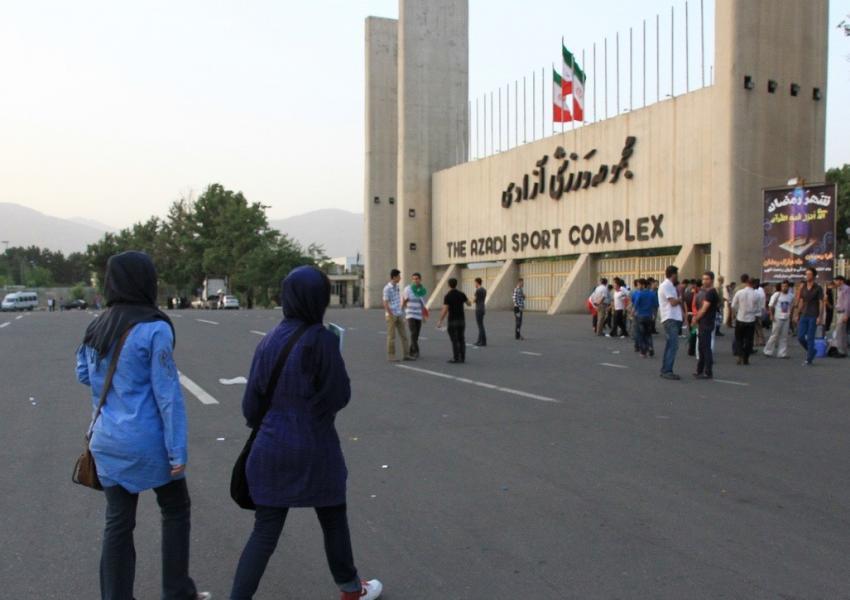
Woman who self-immolated in Tehran was arrested for entering the stadium
The sister of the woman who self-immolated in front of a courthouse in Tehran said that her sister was arrested last February while entering the stadium.
In an interview with Rokna website on Wednesday, the sister said: “My sister went to the Stadium in February of 2019, but the police found out and arrested her when she resisted.”
She said that her sister was bipolar and had been under medical treatment for two years, and her medical record was presented to the court, but she was treated like a normal person and transferred to Varamin prison.
“After her transfer to Varamin prison, she was psychologically traumatized and in terror until she was released on bail. When she goes to the court to get her phone back, things happen there and she hears that she must spend six months in prison,” the sister continued.
She emphasized: “My sister set herself on fire due to mental and psychological illness and is now in terrible conditions at the hospital.”
According to Rokna News, the chair of the burn unit at the hospital wrote: “The patient is 29 and she has 90 percent third-degree burns from gasoline. She is currently in ICU and breathing with the help of respirators.
The young woman self-immolated in front of the Ershad Courthouse in Tehran after pouring gasoline on herself.
She had been charged with “violating public decency and insulting the police officers.”
Recently, six women who had tried to enter Azadi Stadium were arrested and transferred to Varamin prison.
It has been reported that their arrests were as a result of a complaint filed by the president of the Football Federation of Iran in order to prevent women from entering the stadium to watch the league games.
FIFA has assured Iran International in an email that attendance of women in stadiums for the 2022 World Cup qualification games is guaranteed.
There are no laws in Iran against the presence of women in stadiums, but the regime has always refused to allow women to enter stadiums due to the objections of some clerics in Qom.








